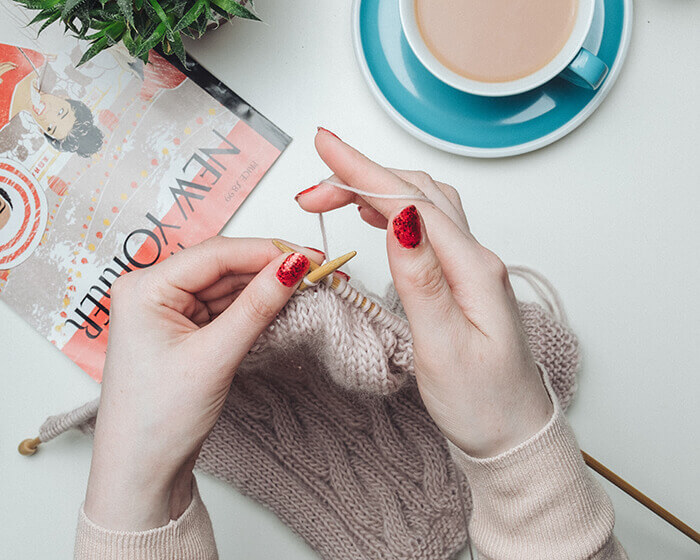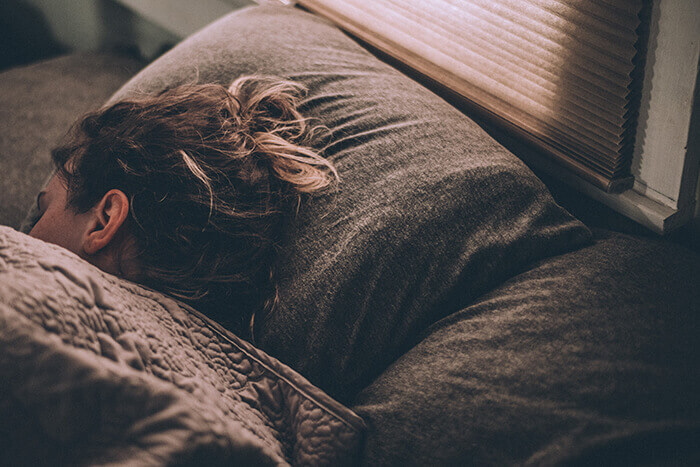13 tips to cope with life in lockdown
By Cable.co.uk | Tuesday, February 2nd 2021
‘Lockdown’ must be one of the most popular words of 2020 and 2021. The outbreak of Covid-19 that brought the world to a standstill made us all familiar with the concept and the reality of ‘staying at home to save lives’. We’ve been asked to stay at home as much as possible but, appealing as it may have sounded at the beginning, long periods of being indoors can wreak havoc in anybody’s mental health. Even if you’re not struggling (yet) we’re bringing you these 13 tips to help you cope when you’re feeling cooped up during lockdown.
In case of doubt, remember you should be checking the UK Government’s COVID-19 guidance. Their Guidance of Mental Health and Wellbeing is also worth a read.
1. Log off
Easier said than done for most, log off. While being online to check the news or to have some light entertainment is all good, it can lead to doom scrolling and can induce digital stress. You don’t have to be online all the time, especially when you’re being bombarded with too much information. Switch your smartphone off and focus on some good old fashioned entertainment like reading a book, doing a puzzle, getting into knitting or baking, going for walks and many more. This will give your mind a well-deserved break.
2. Reach out
We know we said you should be logging off in the previous point in this list of tips to help you cope with lockdown. But it would be silly not to take advantage of the best benefit of technology: connecting with friends and family in a meaningful way. You may not be able to see each other in person but tech can come in handy if you want to have a good chat. Yes, we’re locked down and feeling a bit isolated but imagine not having phones, messaging, video calls or social media. Take advantage of it all and stay in touch with the people you love.
3. Go outside
The country may be in a lockdown and everybody is being encouraged to stay home as much as possible – including working from home – but you can still go out for walks, exercise and to enjoy nature. Going outside is one of the best ways to unwind when everything is getting a bit too much. Wrap up and look for those pockets of greenness around you. We promise you’ll feel so much better.

4. Keep active
Healthy body, healthy mind they say. Looking after your body is important all year round, but especially in lockdown when you’ll be moving less if you’re working from and mostly staying at home. You don’t need to become an athlete, but try to stay active and move. If you can, go for a walk first thing in the morning, on your lunch break or at the end of the day. Or maybe for a run if you’re feeling a bit mor adventurous. And if the weather is cold and wet and you don’t feel like stepping out of your house you try an online class or an easy 10-minute home workout. Give it a go and you’ll notice a positive impact in your mood.

5. Eat a balanced diet
Part of staying healthy is eating healthy, well-balanced meals and drinking enough water. It’s basic and something that should be done all year round. But even more when we’re barely leaving our homes and moving less than in pre-Covid times. If you need more information, visit the NHS’ guide to Eating Well – it’s jam packed with interesting and yummy advice.
6. Make time online meaningful
There is so much information out there that it can feel daunting sometimes. If you need to be online, try to make your time on the Internet as meaningful as possible. Use your platforms for good. Get involved in community building, activism and solidarity. Use them to really connect with other people and communities and your time online will make an impact.
7. Plan stuff you can control
When every day feels like ‘Groundhog day’ it’s easy to feel anxiety and boredom creeping in. We don’t know when lockdown will be eased but we can control what we do with our time. And usually planning and focusing on the things you can control helps give you a sense of purpose and fulfilment. This can mean having a schedule for working from home, deciding next week’s menus or that gardening project you’ve been postponing.
8. Stay safe
The government advice is to stay home as much as possible in order to keep safe and avoid the spread of COVID-19. But staying safe when you’re in lockdown also means being careful when you’re online. Hacking and online crime is on the rise and your guard may be down if you’re stressed or anxious. Make sure you know how to stay safe on the Internet and be vigilant.
9. Focus on the things you enjoy
Lockdown and COVID-19 restrictions will sometimes feel like an emotional rollercoaster that you can’t control. What you can control is the things you focus on and if these bring you joy you’ll start feeling a bit more positive about every day. So, instead of being overwhelmed by uncertainty, pick something you like doing and spend some time each day doing that. It’s not rocket science, really. Knitting, gardening, reading, writing, cooking, DIY or just binging your favourite boxset. These things will add a bit more spark to your days and make you look forward to them.

10. Enforce boundaries
Putting some simple boundaries can be incredibly beneficial for your mental health. We’re home-schooling, or working from home, or just tired of everything that’s going on. Try to separate the spaces and time you dedicate to everything so that you can have a disconnect and proper focus and relax times.
11. Don’t stay glued to the news
We all know that familiar feeling of watching the news all the time or scrolling down social media for an hour without even noticing the time flying. While it’s important to know what’s going on in the world, too much information can increase your anxiety levels. Dosify your exposure to the news and choose when and what to consume. And then go back to doing something else and change subject. Your mental health will thank you for that.
12. Relax
Taking time to relax can work wonders with difficult emotions and worries. And it’s been proven to help with our wellbeing. You don’t need to become an expert yogi or mediate every day. Having some time and space to chill should be more than enough. You could read a book or listen to a podcast. Or you could also try one of the many apps or online tutorials on relaxation techniques, yoga and mindfulness. If you don’t know where to start, the NHS has this useful guide to mindfulness.
13. Prioritise sleep
It’s been scientifically proven that good-quality sleep makes a huge difference to how people feel. That is why it’s so important getting enough good sleep, even when anxiety and more screen time may be wreaking havoc on your sleeping patterns. We’d advise you not to bring any screens or devices to bed, and not to use them before going to sleep. Another good tip is to try to go to bed at the same time every day. Your body will get used to it and respond accordingly. Basically, listen to your body. If you’re dozing off or feeling tired, go to bed and rest. Part of coping with this ‘new normal’ is being gentle to yourself.
